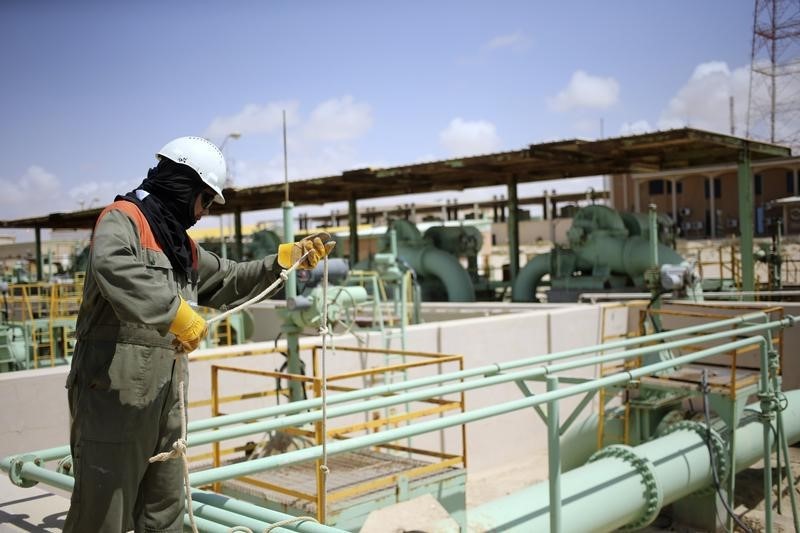SINGAPORE (Reuters) -Oil prices dipped on Tuesday due in part to the prospect of rising supply from Russia, slower-than-expected downstream demand in sectors such as jet fuel, and cautious trading ahead of the Fed’s decision on U.S. interest rates.
The futures contract for May delivery slipped 15 cents to $86.74 a barrel as at 0708 GMT, while U.S. West Texas Intermediate (WTI) prices fell 13 cents to $82.03. The WTI April contract, with expires tomorrow, fell 13 cents to $82.59.
Both benchmarks reached four-month highs in the previous session, buoyed by lower crude exports from Saudi Arabia and Iraq and signs of stronger demand and economic growth in China and the U.S.
Regarding Russia, supply concern stemming from increased exports following Ukrainian attacks on the country’s oil infrastructure continued to pressure prices downward.
“Attacks will likely reduce Russian crude runs by up to 300 kbd (thousand barrels per day), in addition to scheduled maintenance closures… Lower primary runs, however, would lead to higher exports, helping Russia to simultaneously achieve output cuts while keeping exports flat,” JP Morgan analysts wrote in a client note.
Russia will increase oil exports through its western ports in March by almost 200,000 barrels per day (bpd) against a monthly plan for 2.15 million bpd.
Prices were weighed down by uncertainty about how U.S. interest rates would pan out ahead of the Federal Reserve meeting on March 20 at 1800 GMT.
“The market may be in consolidation mode awaiting signals on rate cuts from this week’s FOMC meeting,” said DBS Bank energy sector team lead Suvro Sarkar in an email.
“Oil prices are already up quite a bit over the last two weeks, factoring in higher geopolitical risk premium after the attacks on Russian refineries … There could be some profit-taking at these levels as we doubt price movements above US$85/bbl will be sustainable in near term for Brent.”
On the demand side, analysts were slightly cautious on demand growth coming from the jet fuel sector ahead of the summer travelling season in the third quarter.
Global jet fuel prices are likely to be “higher by 5.4% over our previous forecast to USD111/bbl as soft demand is expected to give way to peak summer travel and stronger prices”, BMI analysts wrote in a client note.
“However, a global economic slowdown will temper consumption of air travel and weigh on jet fuel prices limiting price upside,” they added.
Looking ahead, analysts remained bullish on oil prices from a technical analysis standpoint.
“WTI crude price actions have evolved into a short-term uptrend phase as it manages to trade above its rising 20-day moving average in the past four sessions after a retest on the 20-day moving average on 5 March. Next intermediate resistance stands at US$84.90 per barrel,” said OANDA’s senior market analyst Kelvin Wong.
Read the full article here












